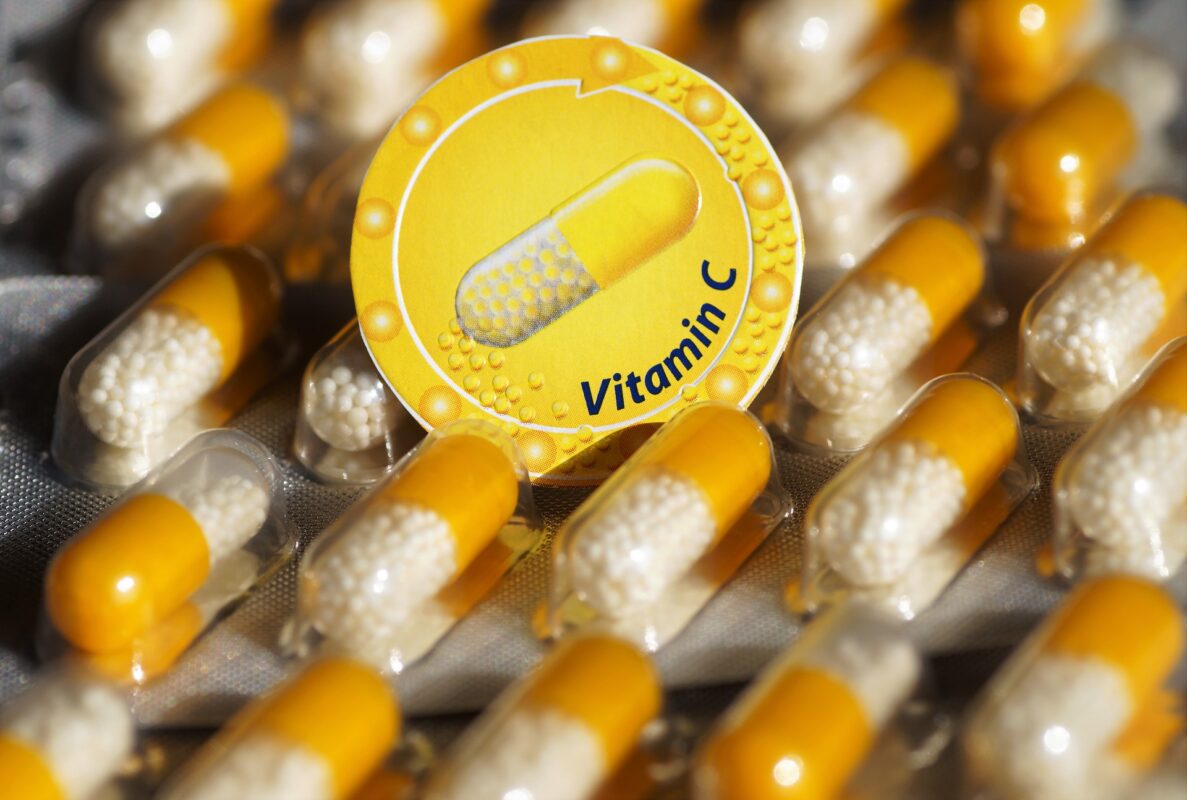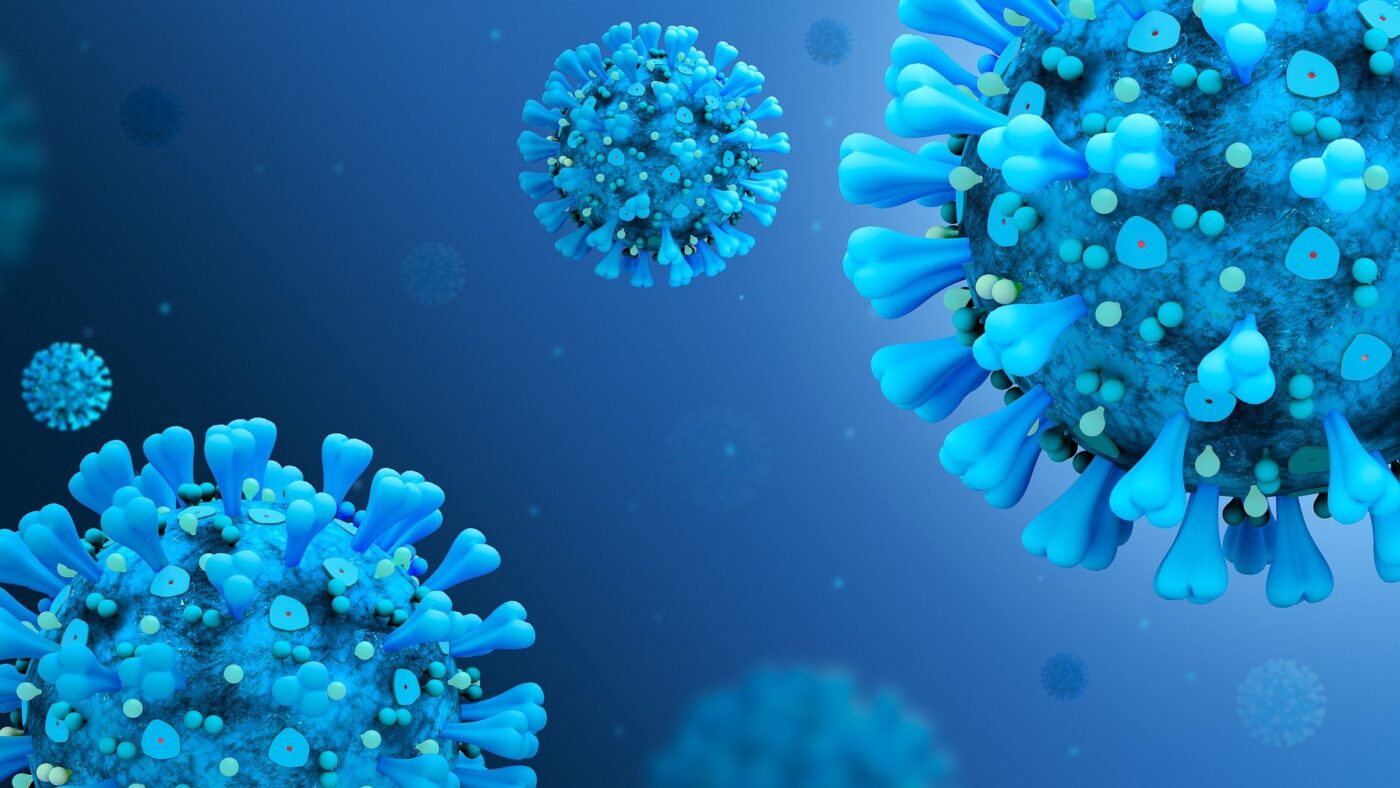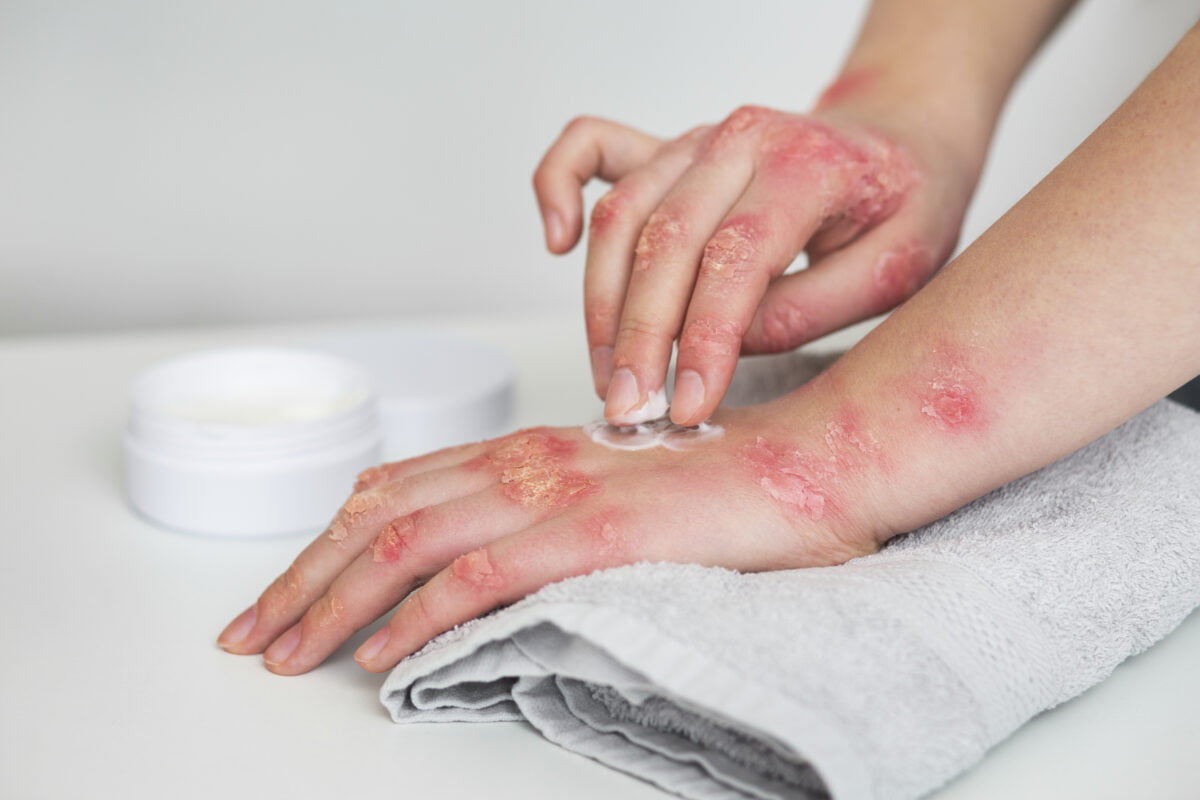There is no doubt that scrubbing exfoliates your skin and helps remove dead skin cells, making it more youthful and softer. It’s specifically helpful for oily skin to unclog blocked pores, remove excess oil, prevent pimples, treat hyperpigmentation, and keep the skin moisturized and hydrated. However, finding the right scrub for your oily skin might become challenging since there are a lot of options available in the market. To help you out, we’ve created a list of the 7 top best face scrubs highly suitable for oily skin types. 7 Best Scrubs for Oily Skin Neutrogena Blackhead Eliminating Scrub The fantastic combination of salicylic acid and BHA (beta hydroxy acid) present in Neutrogena Scrub penetrates deep inside the skin and removes dirt, dead cells, and excess sebum. It gives a soothing sensation and smooth skin texture after exfoliation without excessively drying skin. Neutrogena Blackhead Eliminating Scrub is a dermatologically tested, non-comedogenic, and oil-free product, thus highly effective for oily and sensitive skin types. M3 Naturals Charcoal Scrub Activate your skin juvenility and freshness with M3 Naturals Charcoal Scrub that helps eliminate toxins and dead skin cells. Being formulated with collagen, jojoba seed oil, coconut oil, and aloe vera, it wonderfully removes premature aging signs such as acne, pigmented spots, wrinkles, and fine lines. It also helps prevent excess sebum production and restore the skin’s natural glow. Clinique Exfoliating Scrub Clinique Exfoliating Scrub is a potent skin product for super oily and acne-prone skin. Its water-based formula helps prevent and treat premature aging signs such as wrinkles, fine lines, and dead and dull skin. Its main ingredient Salicylic acid penetrates deep into skin pores, clears excess oil, and reduces the risk of acne. However, read the ingredients list before using Clinique Exfoliating Scrub as the company claims to change the formulation from time to time according to customer reviews and demands. Himalaya Purifying Neem Scrub An incredible combination of neem extract and apricot granules in Himalaya Neem Scrub performs a dual role of acting as an exfoliator and a purifying agent. Exfoliating your oily skin with this Himalaya Scrub will help get rid of dirt, excess oil, bacterial infection, embedded impurities. It will leave your skin smooth and glowing even after 2-3 applications. Aveeno Exfoliating Facial Scrub Aveeno Positively Radiant Scrub improves your skin tone and texture with gentle exfoliation and cleansing. Being a dermatologically approved, hypoallergenic, and non-comedogenic skincare product, it is extremely effective for oily and sensitive skin. A good amount of soy, castor oil, and jojoba oil not only helps retain the skin’s natural moisture but also blocks the excessively open pores and rejuvenates the skin. O3+ Volcano Scrub O3+ Volcano Scrub formulated with vital minerals, and vitamins gently exfoliate the skin, reduces extra oil, brightens skin tone, and nourishes its dull texture. The formula contains activated carbon that efficiently removes dirt, blackheads, and whiteheads. It also helps shrink the pores, thus leaving the skin smooth and shiny. The Body Shop Tea Tree Squeaky-Clean Scrub The Body Shop’s enchanted Tea Tree Face Scrub is dermatologically approved for oily, blemished, and acne-prone skin. Tea tree oil has long been known for its antibacterial properties, which aid in the treatment of bacterial infections and acne. The blend of tea tree oil and biodegradable exfoliators gently peels the dead skin cells and unclogs pores. Bottom Line Exfoliation is essential to remove dead skin cells, excess oil, and other impurities from your skin. This article shares a list of some best face scrubs for oily skin that will make your skin more healthy and glowing.
Monthly Archives: April 2022
Vitamin C is a water-soluble vitamin present in many fruits and vegetables and is beneficial for our body in many ways. You can also consume it from dietary supplements. But how much vitamin C should you take and does the change in the amount affect your health? You will find answers to all these questions in this article. Let’s dive deeper. Why Do You Need Vitamin C? Your body needs vitamin C for performing various functions such as; Vitamin C helps the body produce L-carnitine, collagen, and some neurotransmitters. It supports the body to absorb iron. Antioxidant properties of vitamin C help get rid of unwanted substances called reactive oxidative species (ROS) from your body. Helps improve the skin health. Helps boost your immunity. Helps heal wounds. The antioxidants in vitamin C may help lower inflammation and reduce the chances of developing various health conditions, including some cancers. How Much Vitamin C Should You Take? The recommended dosage or Recommended Dietary Allowance (RDA) of vitamin C varies from person to person, depending on factors like age, gender, and overall health condition, which is as follows: Age Vitamin C dose 1-3 years old 15 mg 4-8 years old 25 mg 9-13 years old 45 mg Teenagers (14-18) 65-75 mg Adult women (19 and above) 75 mg Adult men (19 and above) 90 mg Pregnant women (19 and above) 85 mg Breastfeeding women (19 and above) 120 mg However, research also suggests that the more vitamin C you take, the more it will benefit your immune system. That’s because our body continuously uses vitamin C for immune and inflammatory responses, leading to the depletion of C levels. Lower levels of C may leave harmful consequences on your health. That said, the maximum daily intake of vitamin C is set to 2000 milligrams per day. This amount is considered Tolerable Upper Intake Level (UL) which is unlikely to harm your health. It may help keep the plasma saturated with vitamin C and improve the C levels in cells and tissues. What Happens If You Take A Lot of Vitamin C? Frequently consuming vitamin C through natural food such as vegetables and fruits doesn’t pose any negative effects on your health. However, intake of vitamin C supplements above the recommended dosage or UL might show some mild side effects, such as Nausea Diarrhea Bloating Stomach cramping General abdominal discomfort What happens is our body fails to absorb an excessive amount of vitamin C, which irritates the gastrointestinal tract. What If You Have Low Vitamin C Levels? Usually, vitamin C deficiency occurs because a person takes a diet low in vitamin C. However, constant vitamin C deficiency can lead to a severe condition known as scurvy. Scurvy is a very rare disease in which the body loses its ability to make enough collagen. The scurvy patient shows symptoms such as bruising gums, tooth loss, irritability, tiredness, weakness, anemia, and dry skin and hair. Best Food Sources of Vitamin C Below is a list of some fruits and vegetables that are the best source of vitamin C: Guava Lychee Lemon Orange Kiwifruit Strawberry Broccoli Bottom Line Vitamin C is an antioxidant and a water-soluble vitamin essential for our body. It promotes collagen production, wound healing, and strong immunity. The recommended dosage for vitamin C ranges from 45–120 mg, depending on the person’s age and sex. See the table mentioned above to know how much vitamin C you should take.
Being a water-soluble nutrient, vitamin C cannot be produced or stored in the body. So, you have to consume vitamin C from your diet or supplements to get its remarkable health benefits. A vitamin C-rich diet like fresh fruits and vegetables are the greatest and most healthy sources of vitamin C. However, the question is, “Are vitamin C supplements safe for your helath?” Vitamin C supplements can be beneficial for your skin and body under the prescribed daily limit. Though its excess consumption is not harmful, it may pose mild health issues like nausea, stomach cramps, fatigue, and headaches. Let’s have a look at the benefits, risks, and potential side effects of vitamin C supplements. What is Recommended Dietary Allowance? An optimum level of daily intake of essential nutrients recommended by the Food and Nutrition Board of the US National Research Council is specifically termed Recommended Dietary Allowance (RDA). The level of the recommended dietary allowance varies from person to person depending on age, gender, and generalized health conditions. According to The National Institute of Health (NIH), recommended daily allowance (RDA) for vitamin C in different cases are: RDA for teen boys (14-18 years) is 75mg/day, while for an adult male (above 19 years) is 90mg/day. RDA for teen girls (14-18 years) is 65mg/day, while adult females (above 19 years) is 75mg/day. RDA for pregnant women is 85mg/day and for lactating mothers is 120mg/day. Furthermore, NIH recommends smokers to increase their vitamin C intake by up to 35mg/day than nonsmokers. But keep in mind that taking vitamin C in the form of supplements is not essential for every individual rather, eating fresh and healthy foods may fulfill the body’s demands. People who are suffering from vitamin C deficiency should start taking supplements as in this case, food alone can’t meet the body’s needs for vitamin C. Health Benefits of Vitamin C Supplements Supplements intake containing vitamin C are essential to meet the demands of a healthy body. The most vital roles of vitamin C supplements taken under recommended levels are listed below: Help to prevent cardiovascular diseases Boost the immunity Strengthen bones and muscles Delay the signs of premature aging Rejuvenates skin Help prevent iron deficiency What Value of Vitamin C Intake is Considered High? According to The Food and Nutrition Board, the tolerable intake limit of vitamin C supplements is 2000mg/day. Taking vitamin C above this range is considered high; thus, it can pose serious health problems such as disturbance in the digestive system, cardiovascular issues, formation of kidney stones, etc. So, it’s necessary to consult your doctor before taking supplements to prevent associated health risks. Harmful Effects of Vitamin C Overdosage Your body excretes extra vitamin C (consumed above the RDA level) within a few hours after consumption. Excessive intake of vitamin C supplements may cause mild to severe health problems. The most noticeable problems may include: Disturbance in Digestive System Excessive Iron Production Blockage in arteries Kidney Stones Allergies Bottom Line Supplements can’t be as safe as a healthy diet. You must be extremely cautious in selecting vitamin C supplements. Consult your doctor, who might suggest safe, high-quality, and certified supplements depending on your age and general health condition. You may also condsider taking Diamond Glow, which is a certifited supplement containing vitamin C, B, E, and D and other natural ingredients to improve your skin and overall health.
The immune system is important for our bodies to protect us from foreign invaders and diseases. However, a weak immune system can make your body more vulnerable to different infections, and sometimes, severe debilitating diseases. Why is your immune system weak? There are several reasons behind a weak immune system, such as poor diet, stress, lack of sleep, certain medication, etc. Let’s break this down further and have a look at major sings and causes of weak immune system. Weak Immune System Signs Blood disorders Repeated Infections Autoimmune diseases Frequent cold Mild Fever Fatigue Dry eyes Slow wound healing Joint aches Patchy hair loss Rash Organ inflammation Causes of Weak Immune System The immune system consists of various organs and tissues that aim to detect and neutralize substances that can harm our body. One of the immune system’s main players is white blood cells, these cells circulate continuously through our bloodstream and look for deadly invaders to safeguard us from their adverse effects. White blood cells are capable of protecting our body without any issue until their efficiency is affected by any serious illness. One of the reasons you have a weak immune system is that you might have conditions such as cancer, diabetes, autoimmune disease, or infectious diseases like HIV. Some people are born with the weak immune system, others may get immune deficiency because of medications such as chemotherapy drugs. Psychological Factors Affecting Immune System Stress If you are dealing with stress on an almost daily basis, this could be the reason your immune function is actually suppressed. It causes your body to not produce as many infection-battling white blood cells as it should. Moreover, stress often makes you put aside some healthy habits that can boost your immune systems, such as exercising, eating healthy, and getting enough sleep. This also often leads to increased levels of cortisol, and thus acne. Emotional Trauma Recent research shows that any tragic incident can affect your immunity. Some studies also reported that the sudden death of a loved one could weaken our body’s immune response and make it more prone to viral infections like flu. Overactive Immune System When a person’s immune system is hyperactive, it will respond to environmental factors such as dust, mold, and pollen. Physical Health Factors Leading to a Weak Immune System Certain Medications Certain medications that a person takes to treat conditions like arthritis, allergies, organ transplant, lupus, and IBS (Irritable bowel syndrome) may weaken the immune system. It’s advised to consult your doctor before taking any medication. Too Little Exercise Lack of exercise often leads to a weak immune system. Exercising daily helps the antibodies circulate faster and destroy the invaders before they cause damage to your body. Lack of Sleep Not getting enough sleep often puts the body at more risk of getting attacked by viruses and germs. It also slows down the wound healing process or recovery time. That’s becuase the human body releases certain proteins called cytokines during sleep that help the immune system function better. Other Causes of Weak immune system Smoking Alcohol Bad eating habits Not washing your hands regularly/properly Marijuana Take Away The immune system is a complex system that protects our body from dangerous invaders that can cause illness. If you think that your immune system is not working the way it should, for instance, you constantly get infections, feel tired, have blood disorders or autoimmune diseases, then you might have a weak immune system. Several factors can contribute to and weaken the immune system. We have mentioned some causes of a weak immune system, identify your reasons and treat accordingly. Moreover, take healthy diet and consume immunity booster vitamins such as vitamin A, C, D, and E.
The skin is the largest organ of the human body, and that’s why it’s more prone to autoimmune diseases. Autoimmune diseases happen when your body attacks its healthy tissues instead of harmful cells. These diseases can affect different parts of the body, including the skin. Let’s see how a low immune system or autoimmune disease disorder affects the skin, its symptoms and treatments. Can Low Immune System Cause Skin Problems? Skin is a central player in the immune system as different skin cells identify and kill foreign invaders like viruses and certain bacteria. These skin cells continuously communicate with other cells in the body. Meaning, any change in the immune system will also affect the skin, mainly when the immune system attacks our normal body parts. In some cases, the skin is only affected by the immune system; however, the disorder can affect other body parts as well. As the skin is the visible organ of our body, it may be showing the first sign of a low immune system disorder. Autoimmune Skin Conditions Symptoms Thickened, pitted, or ridged nails Pink or red rashes Scaly patches Stiff and swollen joints Itchy skin Chronic fatigue Blisters in the skin (with clear or milky fluid) Skin inflammation Skin scarring Dry, cracked skin that may bleed or itch Causes of Autoimmune Skin Diseases Why does autoimmune disease occur? It happens when our body’s immune system attacks its own healthy cells. Normally, our immune system produces antibodies against viruses, bacteria, and other foreign cells. If these antibodies attack healthy cells, they are known as autoantibodies. These autoantibodies sometimes also attack skin cells or tissues, and why this happens is still unknown. However, various reasons can cause a low immune system such as excessive exposure to UV rays, infections, hormonal imbalance, stress, certain foods, and medications. Types of Autoimmune Skin Conditions Dermatitis Herpetiformis Dermatitis herpetiformis is a chronic autoimmune disease that occurs in reaction to eating food containing gluten (a protein present in wheat and rye). This skin condition is related to Celiac autoimmune disease, which damages the intestine when you take gluten into your diet. Dermatitis herpetiformis usually happens to people between 30 to 40 and shows signs such as extremely itchy blisters and red bumps on the knees, buttocks, elbows, and scalp. Pemphigoid Pemphigoid is a rare autoimmune disorder where blisters form in the skin. The most common pemphigoid is called bullous pemphigoid. This usually occurs in people above the age of 70. Symptoms of bullous pemphigoid include itchy, firm blisters on any area of the skin, including the genitals and the mouth. Psoriasis A very common autoimmune skin disease that affects about 3% of adults in the U.S. In this condition, patches start growing on the skin too quickly. The most common type of psoriasis is called plaque psoriasis where red patches with thick white scales usually form on the elbows, knees, lower back, and scalp. Treatments for Autoimmune Skin Diseases Rituximab targets specific parts of the immune system and reduces inflammation. It involves regular physician monitoring. Immunosuppressive and immunomodulatory medications- The intake of these medications changes the immune system response as well as control the inflammatory effects of the autoimmune disease. Intravenous immunoglobulin involves a purified blood product containing healthy antibodies. This treatment reduces or prevents the severity of infections in people with a weak immune system. Intravenous immunoglobulin therapy also neutralizes antibodies attacking the person’s body. It may require repeat infusions. The Bottom Line Autoimmune diseases can affect the skin and show different symptoms such as red rashes, scaly patches, and itchy skin. It’s advised to see your physician for the proper diagnosis and treatment of autoimmune skin conditions.
People often confuse dehydrated skin and dry skin as the same thing. In some cases, they fail to tell whether their skin is dry or dehydrated and end up wondering if it needs moisturizer or water. Dehydrated and dry skin are two different skin conditions where the former means your skin is lacking water and the latter usually means your skin is lacking natural oils. Let’s dive deeper into dry vs dehydrated skin to tell the difference between both and how you can treat them for good. Dry Or Dehydrated Skin ﹘ How To Know? Dry skin occurs when your skin lacks moisture or oil to keep it feeling soft and flexible. If you have dry skin, you may have rough-feeling patches that look scaly. It may or may not be itchy, however, in severe cases, it may crack or bleed. You may have dry skin if you experience the following symptoms: Skin feels tight Rough or itchy skin Thin, fragile skin Flaky skin Redness and irritation Small, fine wrinkles Unlike dry skin which happens due to a lack of sebum or natural oils, dehydrated skin lacks water. It is a temporary skin condition that can occur in all skin types, even oily ones. The dehydrated skin feels itchy, especially after washing, and has scales. This is usually a temporary state where your body starts to lose water, and people often confuse it with a “dry” skin type. You may have dehydrated skin if it shows the following signs: Redness Skin that feels tight and uncomfortable – even after moisturizing Congestion Inflammation An oily, shiny complexion Fine lines and wrinkles are more visible Shadows around the face Dry and cracked lips Dullness Severe dehydration may also lead to: Dry mouth Dizziness and faintness Overall weakness Less frequent and darker urination Both dehydrated and dry skin can also be affected by other factors such as environment, diet, and daily habits. For instance, in winters when the temperature is cold and harsh winds blow, the skin easily gets dry and dehydrated than usual. The same happens if you use skincare products that contain harsh ingredients or you excessively expose your skin to the sun. How to Treat Dry Skin Add multivitamins to your diet because vitamin B, C, D, and E, and collagen can help manage symptoms of dry skin. If you have dry skin, try to use cold water and limit bath time. Taking long warm-water baths removes natural oils from the skin. Bath not more than once a day and do not extend it more than 5-10 minutes. Try to use a shower gel or non-soap cleansing cream for baths or showers. People with dry skin should avoid pumice stones and loofahs. Use Coconut oil as its emollient properties fill the spaces between skin cells and create a smooth surface. The saturated fatty acids in coconut oil can hydrate and smoothen the skin. Do not use exfoliating brushes or tools on your dry skin. Although these methods are popular for sloughing off dead skin cells, they can also cause rough, red, and dry skin. Apply a quality moisturizer several times a day, especially after washing your hand and face or when your skin feels dry. Use sunscreen to protect the skin against damage from UV rays. Wear soft fabric that allows your skin to breathe, such as cotton. Avoid wool as it sometimes irritates the skin. Use a humidifier in winters to add moisture to your home and protect from flaky and itchy skin. How to Treat Dehydrated Skin Use a good quality hydrating moisturizer that soothes and replenishes the skin. Use products with powerful nourishing ingredients or natural foods like avocados and olive oil to help retain skin moisture. Drink plenty of water and eat water-rich food such as citrus fruits, patches, strawberries, cucumbers, watermelon, etc. Avoid caffeine and alcohol as they reduce the skin’s water content, which leads to skin tightness and dehydration. Exercise regularly and drink water during and after the workout Get enough high-quality sleep your body undergoes multiple processes during sleep, and it also helps circadian rhythm to manage the fluid levels of the body. Can You Have Both Dry and Dehydrated Skin? Where dry and dehydrated skin has distinctive characteristics, you can have both at the same time. As a matter of fact, dry skin is more vulnerable to dehydration because natural oils in our skin are important for water retention. Reduced levels of natural oils can lead to fluid deficiency in the body. Following the above steps for treating dry skin and dehydrated skin can ensure you have a significant amount of water and oil to help your skin recover quickly.
Vitamin C is one of the most effective components used in many skincare products and dietary supplements due to its remarkable antioxidant and anti-inflammatory properties. It ameliorates skin texture by improving its moisture-retaining capacity and reducing wrinkles and signs of aging. Being dermatologically approved and highly safe, vitamin C usage is increasing day by day for resolving multiple skin-related issues such as photoaging, oxidative skin damage, and hyperpigmentation. Let’s have a look at the top 5 benefits of vitamin C for the skin. Potential Benefits of Vitamin C for Skin Stimulates Collagen Synthesis Collagen, a main structural protein found in the human body, plays an important role in maintaining skin’s texture and retaining its natural moisture. A study claims that vitamin C is directly involved in synthesizing proteins such as elastin and collagen- the main structural proteins in skin cells. They aid in making skin smoother and firmer with a more radiant glow. However, the normal level of collagen depletes with the time that must be restored through diet, supplements, or topical skincare products. Applying vitamin C can accelerate the process of collagen synthesis that ultimately restores skin freshness and youthfulness. Acts as Antioxidant Being a highly potent antioxidant, vitamin C helps fight oxidative stress caused by UV rays, environmental pollutants, chronic inflammation, or certain medicines. Topical application may reduce skin inflammation by neutralizing free radicals involved in oxidative damage. Thus, vitamin C revitalizes your skin by improving its resistance to fighting various skin infections. Provides Protection Against UV Damage The sun’s UV rays deteriorate skin cells and make it more likely to cause infections and sensitivity. Vitamin C is rich in antioxidants that help protect skin cells against free radicals. Research claims that topical ascorbic acid or vitamin C treatment can efficiently reduce photodamage, thus helping alleviate wrinkles, pigmented spots, and coarse skin. Fights Skin Aging Skin aging is a natural phenomenon that can’t be prevented. However, you can delay or minimize the early signs by following a healthy skincare routine. Vitamin C is a magical anti-aging nutrient with many soothing benefits for the skin. Research suggests that topical application of vitamin C can safely reduce photodamage, wrinkles, fine lines, pigmentation, or skin sagging. Although it has high efficacy for delaying or minimizing premature aging, it can’t reverse the problem completely. Treats Hyperpigmentation Excess exposure to UV rays and environmental toxins may lead to pigmentation on the face and other parts. Vitamin C helps fade hyperpigmentation or dark spots by hindering excessive melanin (natural skin pigment) production. Moreover, it also reduces the production of the tyrosinase enzyme involved in melanin production and results in a lightening of skin tone. To Wrap it Up You can get desirable skin benefits of vitamin C by consuming a vitamin C rich diet such as fruits and vegetables. You can also consume it in the form of supplements such as Diamond Glow. It’s a powdered supplement rich in vitamin A, B, C, and E, hydrolyzed marine collagen, and other natural ingredients to help restore collagen, treat hyperpigmentation, and prevent premature skin aging. Vitamin C serums and creams can also be helpful for improving your skin’s elasticity and glow.







